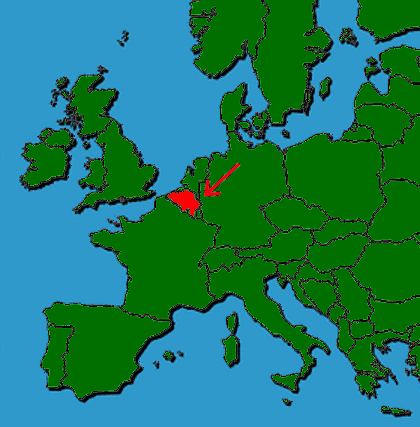
Circle the area on this map

C. The subway station bombing occurred at the heart of Brussels near the headquarters of the European Union, a political and economic union of 28 nations.
A. Both before and after last week's attacks, Belgian police arrested suspects in the Nov. 13 shootings and suicide bombings that left 130 people dead in Paris. Belgium is bordered by France to the southwest, Luxembourg to the southeast, Germany to the east, the Netherlands to the north and northeast, and the North Sea to the northeast.
B. The French-speaking Walloon population is centered in southern Belgium, although the Brussels region in Flanders is a mostly French-speaking enclave. Political differences between the groups have led to a federal form of government, and rivalries have been blamed for miscommunication and problems in dealing with terrorism.
D. While the Islamic State has lost about 20% of the territory it once controlled in Syria and 40% in Iraq, law enforcement officials fear the group could be as deadly in defeat as it was on offense. Strikes in Belgium, Turkey and France may be the tip of an iceberg of militant networks that have already infiltrated Europe.